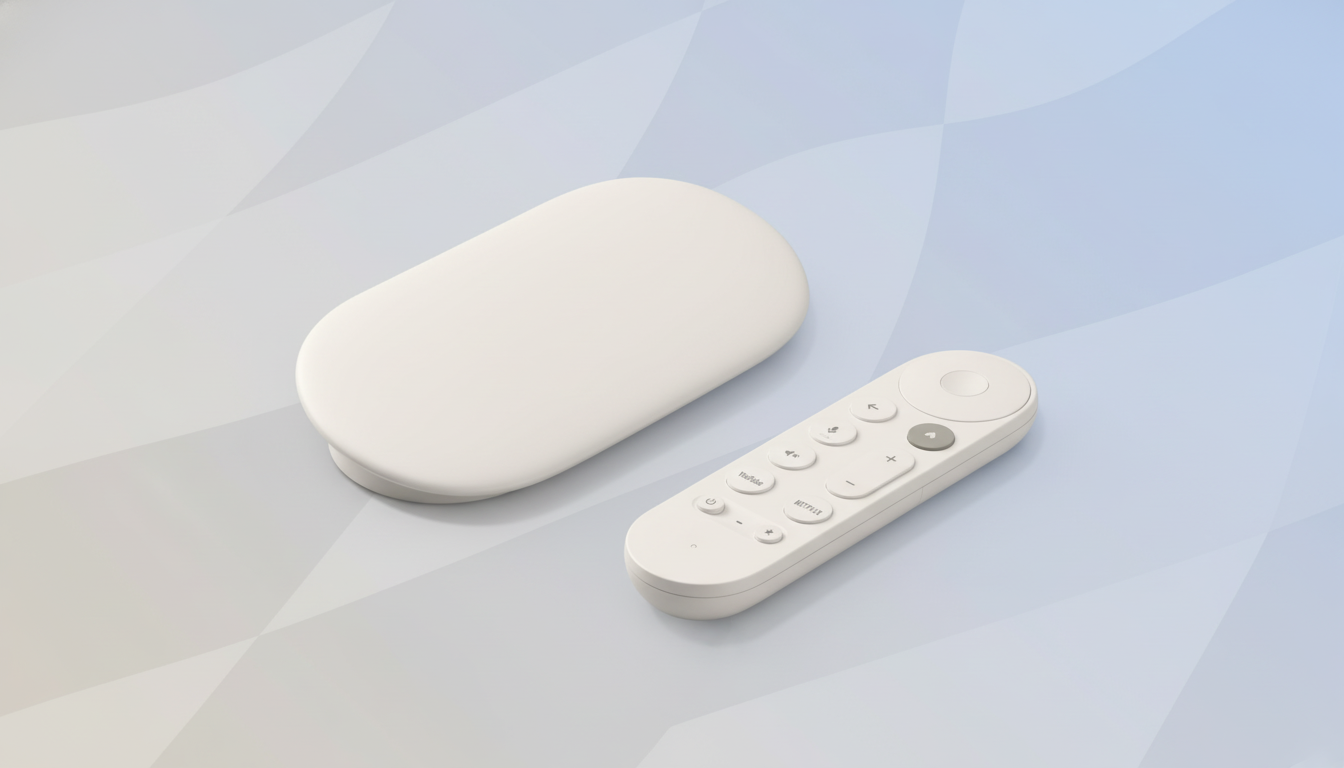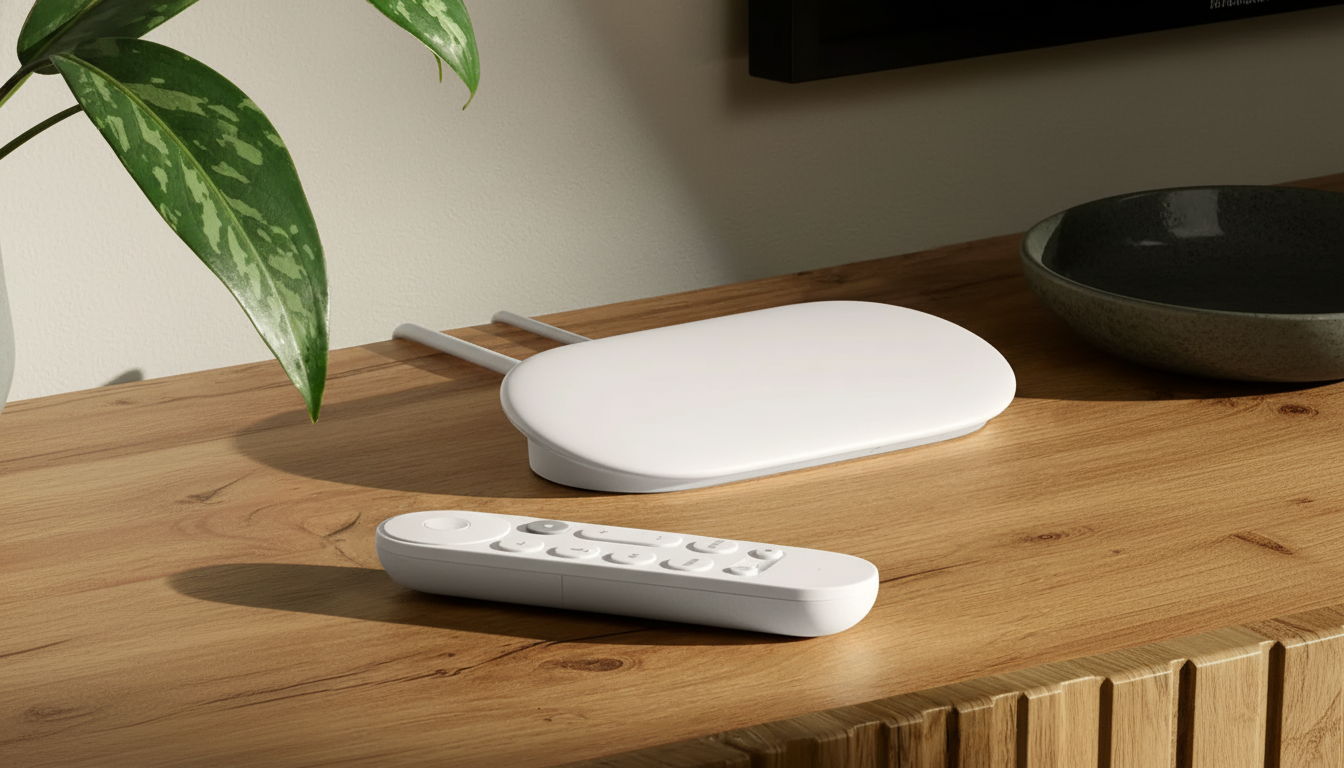Google has confirmed that Gemini is coming to the Google TV Streamer this winter, shortening its previous guarantee of an arrival “later this year.” The updated window was posted by the company on its Nest Community forum, with a note that “more devices” are next in line for the rollout. While “winter” is a big blind target, it generally refers to the window of December to March, implying a staged rollout rather than a same-day flip of the switch.
The change is an official affirmation of what has been happening gradually across Google’s product line: Gemini replaces Assistant as the backbone conversational layer on screens and speakers. For the Google TV Streamer, it means more powerful search, fluid voice commands and deeper integration with the content graph that powers Google TV recommendations.

What Gemini Adds to Google TV and How It Will Work
On televisions, Gemini functions less like a basic voice remote and more like a context-aware butler. It’s a way of asking open-ended questions, like “Find that sci-fi where the android raises a child” or “Show me comedies with a 90% rating and Tom Hanks,” and seeing what Gemini’s parsing across apps, genres, cast and ratings will yield in terms of options. It can also juggle mundane tasks — open apps, pause and play content, switch sources and adjust settings — with conversational follow-ups like “Turn on captions and rewind 20 seconds.”
Crucially, Gemini uses Google TV’s personalization stack that is already in place. Look for greater consistency with watchlists, profiles and Google’s cross-service Content Search API. That translates to more accurate answers for long-tail queries and better handoffs to third-party apps. What you add to your watchlist in the Google TV app should carry over directly to the big screen, no extra setup needed.
Assistant being replaced also means there’s a consistent roadmap across devices. Among the features launched on smart displays — richer knowledge answers, multimodal prompts for multi-step tasks and context carry-over — we can expect to hit TV over time. When people try to combine devices and content from a range of media households, that continuity will mean more than any single command.
Rollout scope and early sightings across TV brands
Gemini has already been making an appearance on some televisions. Early access appeared on TCL’s high-end QM9K series, with some Sony Bravia owners also reporting that their TVs had been updated. While those sightings suggest an OEM-driven pilot, Google is getting ready for a wider software push of its own streamer. That trajectory is now official, in the winter window.
Expect a staggered rollout. Television features often turn into a trifecta of server-side enablement, app updates and device firmware. For Google TV Streamer devices, users can expect Gemini to arrive by way of a Google app and services update, at which point the on-device voice experience will flip over once back-end flags are flipped. More than just Google products will get today’s drops, according to Google, which claims the release covers “more devices.” By most measures, that seems to be at least some smart displays and speakers getting parity updates somewhere near February 2025.
Voice settings and data controls will be front and center for privacy-conscious households. Google account toggles like Voice & Audio Activity and Web & App Activity continue to control how queries are saved and put to work for personalization, while physical mic switches residing on many remotes provide an on/off switch at the hardware level for always-listening capabilities.

How it compares with rivals in the streaming TV space
Competition is growing in the TV assistant race. Amazon has been increasingly filling Alexa on Fire TV with generative powers, which allow more natural-language content discovery and deeper app shortcuts. Roku has been developing increasingly robust cross-app search and voice, while Apple’s tvOS relies on Siri and deep integration with the company’s services stack. Gemini’s advantage is Google’s extensive knowledge graph and YouTube data, which enable more granular discovery and media recommendations.
That’s relevant because TV search is famously messy. According to Parks Associates, an overwhelming majority of US internet households own at least one streaming device, and viewers are increasingly managing multiple subscriptions across services. And in a space like that, assistants who know actors, episodes, quotes and themes in addition to titles can shorten the distance between “I want to watch something,” at one end of the loop, and actually pressing play.
What to expect at launch on the Google TV Streamer
When Gemini touches down on the Google TV Streamer, expect a refreshed voice interface on the remote control as well as a rebranded assistant UI and more intelligent query handling across all apps. Users should try out long-tail searches (“Show me Spanish-language thrillers from the past five years”) and follow-ups (“Only the ones available in 4K”), to see how well Gemini handles searching catalogs and capabilities.
Developers, meanwhile, might get a boost if they already support Google’s Content Search API, deep links and robust MediaSession controls. Those integrations allow Gemini to leap directly into the precise title, episode or moment a user asks for, minimizing friction and drop-off.
There may be some initial inconsistency by region and language at launch as Google matches rights metadata and provider availability. Families that use kid profiles should also keep an eye on how parental controls interact with Gemini’s general search, to help maintain a level of control over what results should follow family content limits.
The bottom line on Gemini’s rollout to Google TV
By locking down a winter window, Google is signaling that Gemini on TV is ready to go from limited pilots to a mainstream feature inside its own streamer. The upside should be an easier, more conversational way to get to the right show or movie — and a clearer indication of how Google plans to pull AI together in the living room. Should Google hit on cross-app depth along with follow-up context, Gemini could soon enough be the easiest way to watch, not just another way to search.

